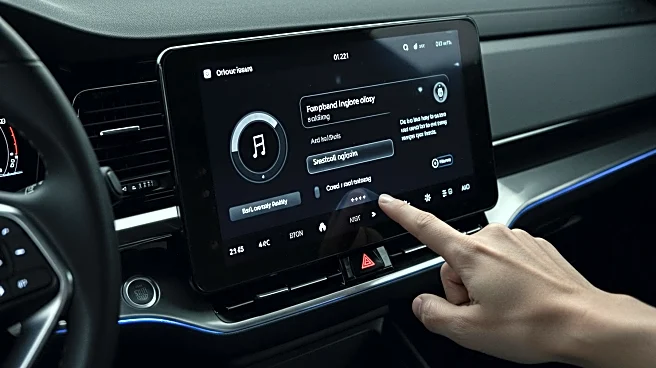What's Happening?
Volkswagen is confronting a potential class-action lawsuit due to issues with the capacitive touch buttons in its 2021-2023 ID.4 models. Filed in New Jersey by two owners, the lawsuit claims that the steering wheel controls are overly sensitive, leading to unintended activations of the adaptive cruise control. One incident involved a vehicle accelerating unexpectedly when a driver's hand brushed the sensor, resulting in significant damage and injury. The lawsuit includes numerous complaints from other ID.4 owners, highlighting problems such as unintended acceleration and emergency braking failures. These issues have reportedly led to accidents, particularly during parking maneuvers. Volkswagen has acknowledged the complaints and plans to discontinue the technology in future models, but this does not address the existing vehicles on the road.
Why It's Important?
The lawsuit against Volkswagen underscores significant safety concerns with modern vehicle technology, particularly touch-sensitive controls. If the claims are upheld, it could lead to substantial financial liabilities for Volkswagen and impact its reputation for safety and reliability. The case also highlights broader industry challenges as automakers increasingly integrate advanced technologies into vehicles. Consumers and regulatory bodies may demand stricter safety standards and testing for new technologies, potentially affecting the pace of innovation in the automotive sector. The outcome of this lawsuit could influence how other manufacturers approach the design and implementation of similar features.
What's Next?
The legal proceedings will likely involve detailed investigations into the design and functionality of the ID.4's touch controls. Volkswagen may face pressure to issue recalls or provide compensation to affected owners. The case could also prompt regulatory reviews of similar technologies across the automotive industry. Stakeholders, including consumer safety advocates and industry regulators, will be closely monitoring the situation. Depending on the lawsuit's outcome, there could be broader implications for how vehicle safety features are evaluated and approved in the future.










